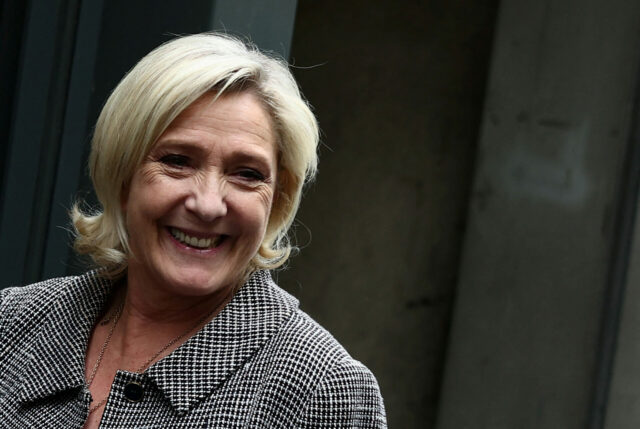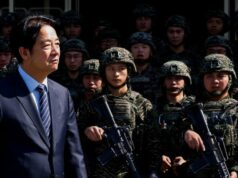Prime Minister Narendra Modi delivered a message of peace in Austria a day after condemning the killings of innocent children in a hospital in Ukraine.
“This is not an era of war,” Modi said in Hindi, repeating his oft quoted remark at the SCO leaders’ summit in Samarkand in September, 2022.
PM Modi said, “Chancellor Nehammer and I have discussed in detail the ongoing conflicts around the world, whether it is the conflict in Ukraine or the situation in West Asia. “
He added, “I have said before that this is not a time for war. Problems cannot be solved on the battlefield. The loss of innocent lives, anywhere, is unacceptable. India and Austria emphasize on dialogue and diplomacy for the earliest possible restoration of peace and stability. We are both ready to provide every possible cooperation to achieve this.’’
The issue of killings of children during conflicts also figured prominently in PM Modi’s bilateral meeting with President Vladimir Putin of Russia, on Tuesday.
PM Modi said in Russia that it is heart-wrenching when innocent children die. He said that everyone who believes in humanity is hurt when there is a loss of lives.
Ukrainian President Volodymyr Zelenskyy had expressed disappointment over Prime Minister Narendra Modi’s visit to Russia. He termed it as a devastating blow to peace efforts.
Zelenskyy took to social media platform X to post that on the same day 37 people, including three children, were killed and 170 others were injured due to Russia’s missile strike at the largest children’s hospital in Ukraine’s capital city Kyiv.
PM Modi arrived in Vienna on Tuesday evening as part of his two-nation visit to Russia and Austria.
He assured the world that India and Austria stand ready to cooperate in restoring peace and stability in Ukraine.
Modi delivered these remarks after delegation-level talks with Austrian Chancellor Karl Nehammer at the Federal Chancellery in Vienna.
He delivered these remarks from a hall where the historic Vienna Congress was held in the 19th century. That conference provided direction for peace and stability in Europe.
Austrian Chancellor Nehammer echoed PM Modi’s sentiments and highlighted the strong relationship between Austria and India. “There is a very good relationship between India and Austria. It’s a relationship of trust which began in the 1950s… India helped Austria and in 1955, the negotiations came to a positive conclusion with the Austrian State Treaty. What unites India and Austria is concern over the development of the geopolitical situation,” he said.
Nehammer said that he held very intensive talks last night and in Wednesday morning wih PM Modi, about the Russian war of aggression against Ukraine. “For me, as the Federal Chancellor of Austria, it is particularly important to get to know India’s assessment and to understand it and familiarise India with European concerns and worries. Moreover, the conflict in the Middle East was a major topic, and in addition to this challenging geopolitical situation, we also referred to the positive aspects of our cooperation.”
The Indian Prime Minister expressed satisfaction over the “meaningful discussions’ he had with Chancellor Nehammer. He said that they identified new opportunities to further strengthen cooperation and give strategic direction to the relationship.
He said that India and Austria have prepared a blueprint for cooperation over the coming decades. “This is not limited to economic cooperation and investment alone.” he explained.
Modi said that the belief of the two countries in values such as democracy and the rule of law forms the strong foundation of their relationship.
He said that the start-up bridge will be accelerated in order to connect the youth and ideas of both countries. The two sides have reached an agreement on mobility and migration partnership. He expressed the confidence that this will facilitate legal migration and the movement of skilled workforce. Exchanges between cultural and educational institutions will be promoted.
India and Austria also shared thoughts on challenges faced by humanity, such as climate change and terrorism.
PM Modi invited Austria to join Indian initiatives like the International Solar Alliance, Coalition for Disaster Resilient Infrastructure, and the Biofuel Alliance.
Modi said, “We both strongly condemn terrorism. We agree that it is unacceptable in any form and cannot be justified in any way. We agree on the need for reforms in the United Nations and other international institutions to make them more contemporary and effective.’’
The Prime Minister extended best wishes to Chancellor Nehammer and the people of Austria, for elections in the coming months. He invited Chancellor Nehammer for his friendship and invite him to visit India.
Modi’s visit to Austria at the very beginning of his third straight term in office is significant. In his own words, it is after forty-one years that an Indian Prime Minister has visited Austria.
“It is also a pleasant coincidence that this visit is taking place as our bilateral relations complete 75 years,’’ Modi said in his Press statement at the joint Press conference with the Chancellor of Austria.
Modi also addressed the Australia-India CEOs meeting with the Chancellor of Austria, Karl Nehammer.
Leading Austrian and Indian CEOs from diverse sectors attended the meeting.
PM Modi called on the Austrian business stakeholders to look at the fast unfolding opportunities in India.
He also invited Australian businesses to utilize the investment opportunities in India and be part of India’s stellar growth story.
The one thing that will be long remembered after PM Modi’s visit will be the way he persuaded leaders to give peace a chance.
Delhi based journalist pickled in journalism. Have reported from nine world capitals and almost all parts of India. Over the last three decades, I have worked for India’s mainstream English dailies and contributed to All India Radio, Doordarshan and Women’s Feature Service. Also worked for international media including Japan’s leading newspaper, The Asahi Shimbun and done assignments for The Sunday Times, London, The Telegraph, The Guardian and the Canadian Broadcasting Corporation. Worked in the Embassy of France in New Delhi and can speak French to save my life. Write on Diplomacy, Politics and the social sector. Love Nature, heritage, Nature, animals and vintage cars. Enjoy cycling and playing badminton.





